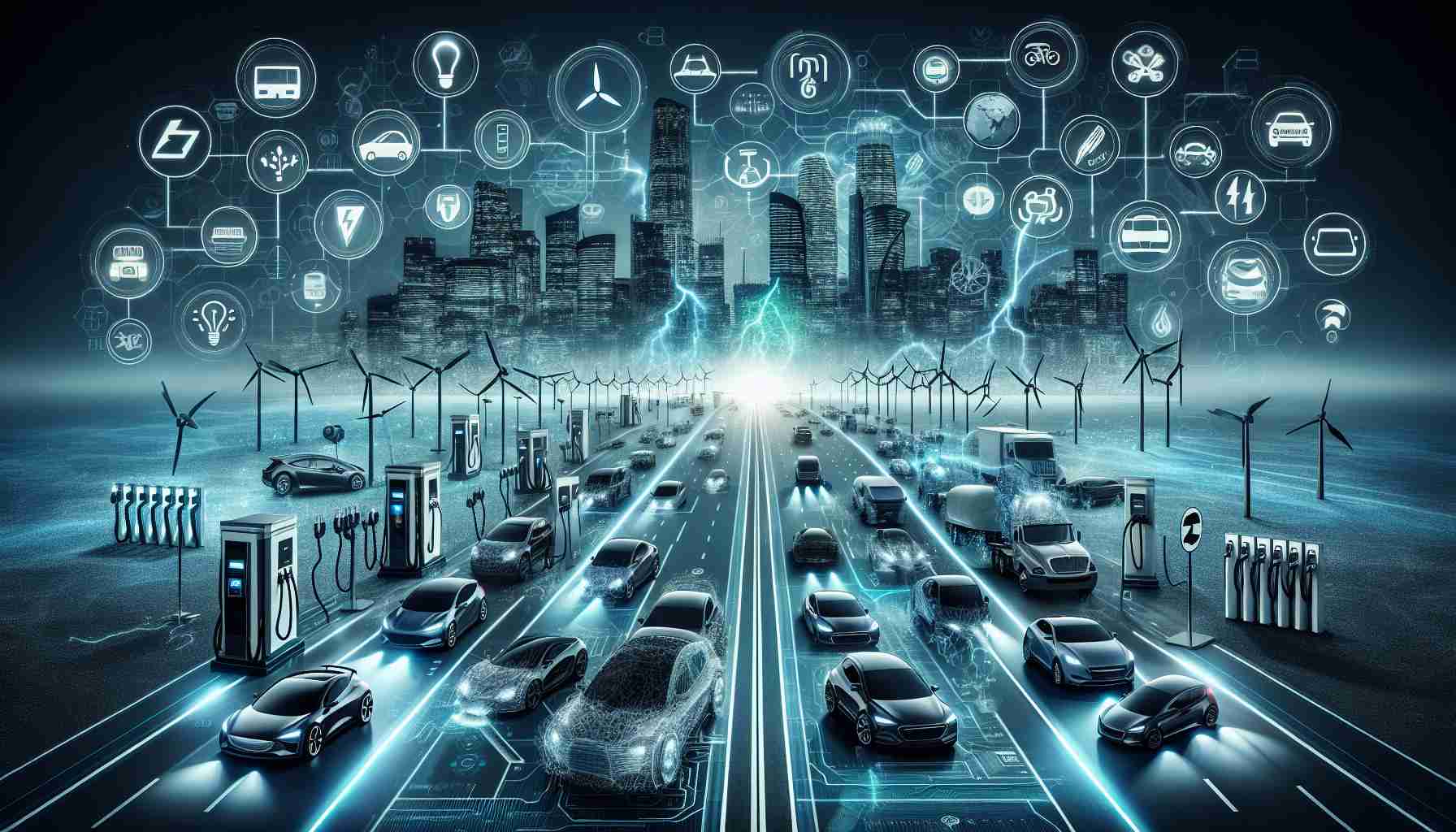- The electric vehicle industry is a major job creator, with GM alone employing 90,000 people and generating $12 billion in wages.
- Relyion Energy has achieved UL 9540A certification, promoting safety and sustainability in repurposed EV battery cells.
- SES AI is innovating by integrating battery tech with drones, enhancing emergency services by mid-2025.
- Workhorse Group’s E-GEN platform has successfully tested over 10 million miles for last-mile delivery operations.
- SBD Technologies and Emobi are transforming fleet management through access to 120,000 charging stations.
- Nissan’s Ariya models are being tested with solar-powered chargers in tough environments, promoting greener energy solutions.
- Octillion Power Systems is advancing the North American EV market with a new battery plant in Reno.
In an electrifying wave of advancements, industry giants are steering the future of electric vehicles (EVs) and energy solutions into uncharted territories. General Motors (GM) is not just an automotive titan but a powerhouse of job creation, currently employing 90,000 individuals and generating a stunning $12 billion in wages. With ambitious plans for 2025, GM is determined to sustain its momentum, delivering cutting-edge electric models alongside traditional gas-powered vehicles while indirectly supporting hundreds of thousands of jobs nationwide.
Meanwhile, Relyion Energy is making strides with its UL 9540A certification for repurposed EV battery cells, championing safety and sustainability. This milestone enhances the lifecycle of vital materials and reassures consumers about the reliability of their energy solutions.
On the tech frontier, SES AI is pairing its advanced battery technology with Data Blanket’s drones, enhancing capabilities for emergency services like firefighting. Initial deliveries are set to redefine drone efficiency by mid-2025.
Workhorse Group’s E-GEN platform is celebrating a monumental achievement, surpassing 10 million miles in real-world testing, a testament to its durability for last-mile delivery operations. Their flagship W56 model further illustrates their commitment to sustainable commercial vehicles.
Additionally, innovative partnerships like SBD Technologies and Emobi are revolutionizing fleet management, providing seamless access to over 120,000 charging stations, while InductEV is gearing up for hands-free charging at California’s Long Beach port, reducing emissions and enhancing operational efficiency.
Nissan’s Ariya models are proving their mettle in the brutal Arizona desert, with a nod toward sustainability via solar-powered chargers at their testing center. Lastly, Octillion Power Systems’ new battery plant in Reno is set to accelerate the North American EV landscape significantly.
Takeaway: The electric vehicle revolution is not just about cars; it’s driving job creation, technological advancements, and sustainable practices across multiple industries, promising a vibrant future ahead.
Revolutionizing the Future: Unveiling the Latest in Electric Vehicles and Sustainable Energy
The Electric Vehicle Landscape: Innovations, Trends, and Insights
The electric vehicle (EV) sector continues to thrive with unprecedented growth fueled by technological advancements and sustainability efforts. Major players in the automotive industry are not only focusing on the development of electric models but are also committing to sustainable practices that benefit both the economy and the environment.
1. Technological Innovations: Investments in battery technology and energy solutions are transforming the landscape of electric vehicles. Companies are researching next-generation solid-state batteries that promise to enhance energy density and charging times while reducing costs.
2. Sustainability Efforts: The EV industry is increasingly focused on sustainability, not only in manufacturing but also in battery recycling and repurposing initiatives. This includes companies like Relyion Energy, which is championing the use of repurposed EV batteries in energy storage, providing a dual benefit of reducing waste and enhancing energy security.
3. Market Trends: Over the next decade, the global EV market is projected to see significant growth. Analysts predict the market could expand at a compound annual growth rate (CAGR) of over 25%, driven by increased consumer demand, government incentives, and advancements in charging infrastructure.
Key Insights and FAQs
1. What are the major challenges facing the electric vehicle industry today?
The EV industry faces several challenges, including battery supply chain constraints, the need for extensive charging infrastructure, and the high upfront costs of EVs compared to traditional vehicles. Additionally, there are concerns regarding the environmental impact of lithium extraction and battery disposal.
2. How are companies addressing the issue of charging infrastructure?
Partnerships between automotive companies and charging network providers are crucial. For instance, the collaboration between SBD Technologies and Emobi facilitates access to a vast network of over 120,000 charging stations. Furthermore, innovative solutions such as InductEV’s hands-free charging technology aim to simplify the charging process, making it more efficient for users.
3. What role does government legislation play in the growth of electric vehicles?
Government policies and incentives are pivotal in promoting electric vehicle adoption. Initiatives such as tax rebates for EV purchases, emissions regulations, and funding for charging infrastructure help to accelerate the transition to electric mobility. Countries with robust EV policies are witnessing faster market penetration and consumer acceptance.
Related Links
For more insights into the electric vehicle market and sustainable energy practices, visit GM and SES AI.
Conclusion
The electric vehicle revolution is much more than a transition from gasoline to electricity; it’s a comprehensive movement toward sustainable innovation and economic growth. With ongoing advancements and strategic partnerships, the future for electric vehicles and green energy solutions appears brighter than ever, promising significant impacts across various sectors.
